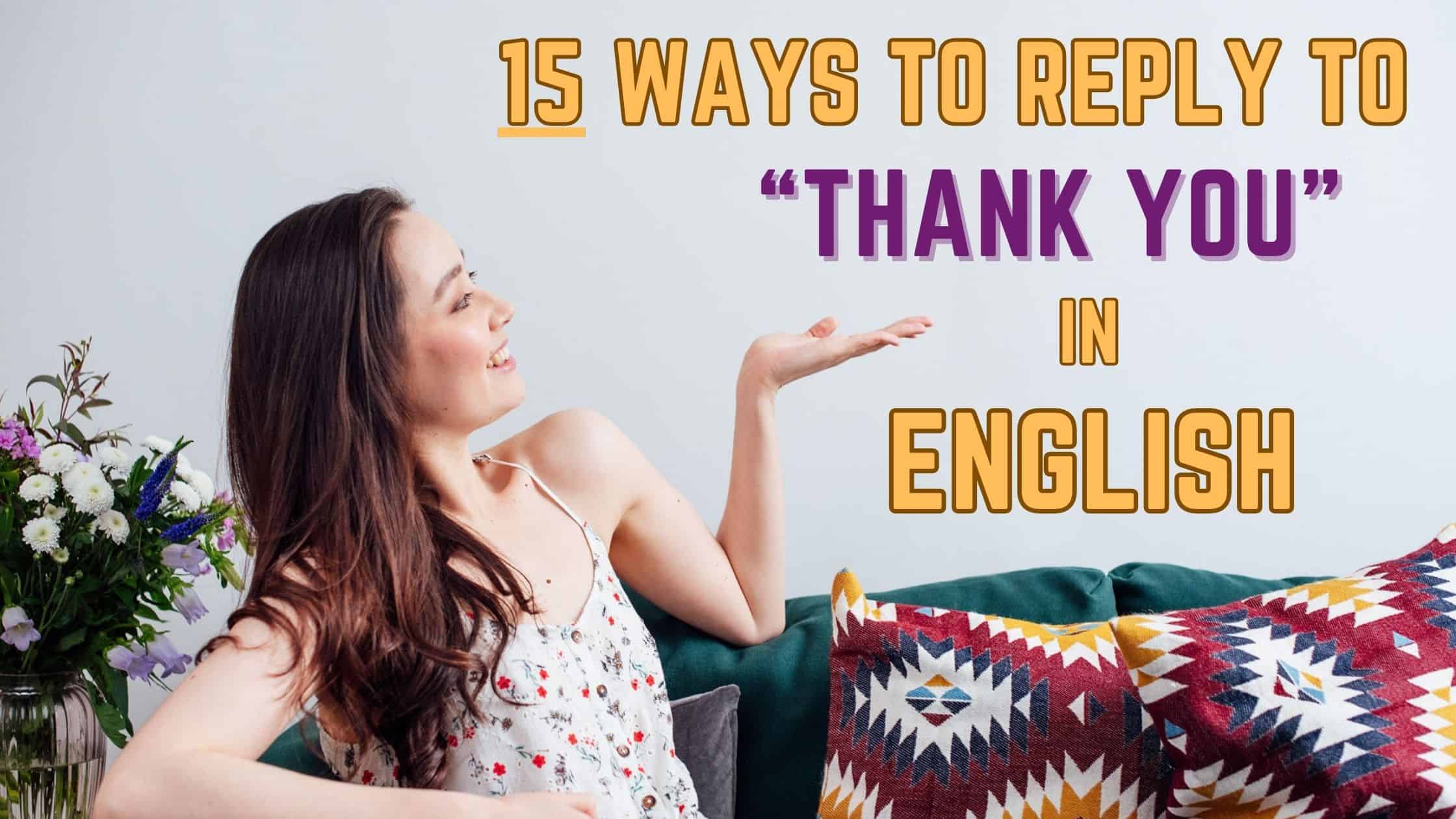15 Ways to Reply to “Thank You” in English
Hello, wonderful learners! Today, I’ve got a little treat for you: a fantastic list of 15 different ways to respond when someone says “thank you.” Replying to “thank you” is one of those key ingredients in the recipe for smooth and friendly English conversations. So, grab a comfy seat, and let’s explore these responses together, making sure you’re ready to chat away and make connections in English with ease!
1. You’re welcome.
Definition: One of the most common and straightforward responses to thank you.
Clive: “Thanks for helping me practice for my speaking exam.”
Isabel: “You’re welcome!“
2. Not at all.
Definition: This phrase is the polite way of saying that the thing you did, or help/favour provided was not a problem.
Micha: “Thank you for picking up my package from the post office!”
Tim: “Not at all, it was right on my way home.”
3. No problem. / No worries.
Definition: These are laid-back/informal ways of saying that whatever was done or asked wasn’t a hassle or inconvenience.
Elliot: “Thanks for saving me a seat. This place is packed!”
Maria: “No problem. I had to make sure you had a spot!”
Becky: “Thanks for letting me borrow your charger. Mine phone just died on me.”
Emma: “No worries, I always bring a spare!”
4. Anytime.
Definition: An informal response that implies you’d be willing to help or do the favour again if needed.
Sophia: “Thank you for your advice.”
Matteo: “Anytime! I’m here to help.”
5. It was my pleasure.
Definition: This is generally more formal, but it can also be used with friends and family. We use this response to show that you were genuinely happy to help.
Cristiano: “Thank you for baking those delicious cookies for the meetup.”
Lionel: “It was my pleasure. I’m glad everyone enjoyed them!”
6. Glad to help.
Definition: A simple and direct way of expressing that the person found joy or satisfaction in being helpful.
Ralph: “Thanks for explaining the past participle to me.”
Catherine: “Glad to help.“
7. Don’t mention it.
Definition: This phrase is a casual response to thank you. It downplays your actions to make the other person feel at ease, suggesting that helping them was not a burden.
Natalia: “Thanks for giving me a lift to the store.”
Paolo: “Don’t mention it. It was no trouble at all!”
8. Happy to be of service.
Definition: This is a more formal response or even professional response. You would not usually hear or use this in a social situation or around friends/family.
Silvia: “Thank you for finally getting the Wi-Fi fixed. I haven’t been able to work for hours!”
Antonio: “Happy to be of service. Your satisfaction is our top priority.”
9. Think nothing of it.
Definition: This is another informal response which suggests that what you did, or the help provided was not a big deal.
Henry: “I can’t thank you enough for the favour.”
Carol: “Think nothing of it. It’s what friends do.”
10. My pleasure.
Definition: This is a less formal way to say, “It was my pleasure” (#5). It conveys that the person was happy to be of help.
Arnold: “Thank you for your assistance. Your help was invaluable today.”
Sylvester: “My pleasure.“
11. That’s all right.
Definition: Number 11 is a casual way to acknowledge thanks suggesting that the favour done was not a big deal.
Wendy: “Thanks for waiting. I know I took forever in the store.”
Stan: “That’s all right. I was just checking some stuff on my phone.”
12. I’m here to help.
Definition: This formal phrase is typically used in scenarios where assisting customers or members of the public is a person’s job or responsibility.
Charles: “Thank you for clarifying that point during the meeting. It was quite helpful.”
Elizabeth: “I’m here to help. So, if you have any more questions, feel free to ask.”
13. Glad I could assist.
Definition: This communicates a sense of satisfaction in being able to offer help or solve a problem. Like number 12, this would normally be used in a work/professional environment, not with friends or family.
Serena: “Thank you for your swift response to my inquiry. It has made things much clearer.”
Anna: “Glad I could assist. If you require any further information, please do not hesitate to contact me.”
14. Of course!
Definition: This is an informal response which expresses that the act of helping was a natural or expected response.
Tony: “Thanks for covering for me at work today.”
Martina: “Of course! You’d do the same for me.”
15. Always happy to help.
Definition: This friendly response expresses consistent willingness and positivity in offering assistance.
Fernando: “Thank you for providing such detailed insights on our project’s status.”
Harriet: “Always happy to help. Let me know if you need any further updates.”
If you’re finding these 15 Ways to Reply to “Thank You” in English useful, please be sure to check out my store below! 











Hello Arnel!
Thank you so much for these ways to reply “thank you”.
I’m going to use “anytime”, “glad to help” “it was my pleasure”, “happy to be of service” next time.
Have a great day.